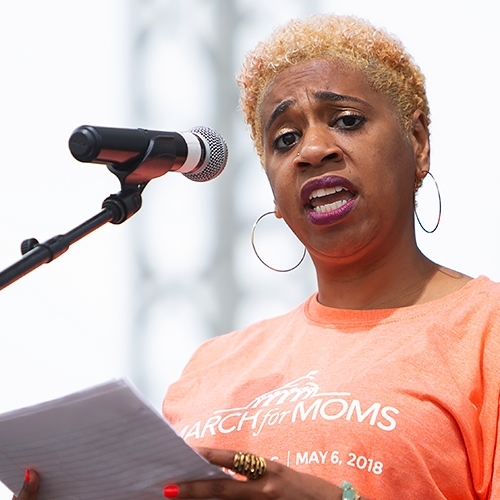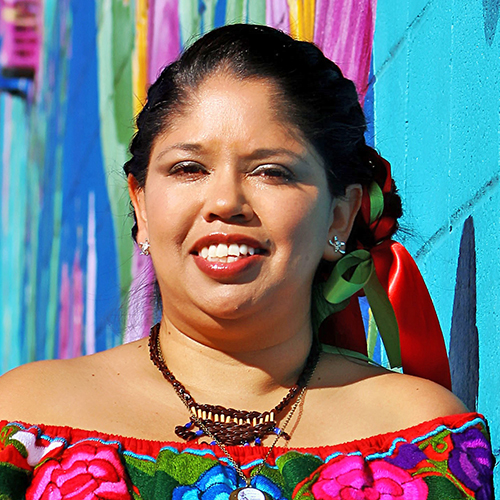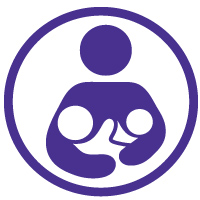 Inequalities & Breastfeeding Online Course(s) & Continuing Education
Inequalities & Breastfeeding Online Course(s) & Continuing Education
Access the latest clinical skills and research for Inequalities & Breastfeeding for Lactation & Breastfeeding professional training. These Inequalities & Breastfeeding online courses provide practice-changing skills and valuable perspectives from leading global experts. This Inequalities & Breastfeeding education has been accredited for a variety of CEUs / CERPs and can be accessed on-demand, at your own pace.


Paulina is the mother of three multicultural Latino children and Project Director for Lifespan Local. Paulina earned her BS in Psychology from the Pennsylvania State University, a MS in Organizational leadership from the University of Denver and is completing her PhD in Health and Behavioral Sciences at the University of Colorado - Denver. Paulina has over 18 years of experience working with families with young children. As a Maternal Child Health specialist for Jefferson County Public Health, she developed a NICU follow-up home visitation program and the pediatric emergency preparedness plan, co-founded and coordinated the Conectando Network (former Adelante Jeffco), established community navigation and lactation support groups focused on the Latino Spanish speaking community, and lead other initiatives to support leadership and partnerships among communities and organizations. During the COVID-19 pandemic, she managed the new program Whole Community Inclusion to ensure the pandemic response and recovery implementation included health equity practices that recognize the needs and the strengths of priority populations in the county. Her areas of current work include promoting perinatal and infant mental health along the continuum of care; building community capacity to navigate health and education systems; facilitating organizational change to embrace linguistic and culturally responsive practices; and establishing community-placed participatory programs to strengthen communities. She likes to be with people, learn from and with others, and connect passions for meaningful work.
Topic: From the NICU to the home: mother’s experiences - [View Abstract]
Topic: Leadership Skills in Lactation: Make Extraordinary Things Happen - [View Abstract]
Topic: Liderazgo en Lactancia - Para Alcanzar Metas Extraordinarias - [View Abstract]
Topic: Nursing A Preemie, Perspectives For Lactation Supporters and Professionals - [View Abstract]
Breast/chest feeding is a biological, emotional, and social process. There is an undeniable link between human
milk and behaviors associated with feeding. Breast or chest feeding provide the perfect environment for babies’
development, such as bonding, attachment, mutual regulation, security, etc. But what happens when parents
can’t access effective, culturally competent, compassionate lactation services? What happens when over
generations lactation support has been lacking?
Every parent deserves the chance to meet their feeding goals and enjoy the short and long term benefits of
human milk feeding. Social inequities augment the effects of not experiencing those benefits making it even
harder for parents and babies to have their physical, emotional and social needs met. Outcomes of lactation
impact the dyad, the family, the community beyond the nutritional needs of the infant.
Advocacy efforts at local, regional and national levels create meaningful opportunities for health equity, so
those with no power or resources can reach optimal health. Lactation consultants are in a unique position to
advocate and partner with others to support policies and programs that focus on equity as a systems approach
to benefit marginalized communities and impact their physical and mental health in the long-term.

View Details / Enroll

Check your “Blind” Spot, The Crisis We Are Not Talking About: Transforming Color Blindness to Racial Equity

Felisha Floyd, BS, CLC, IBCLC is currently Lactation Coordinator for Hospital Corporations of America system in Florida. She also offers infant feeding support, mentorship, and education to her local community via her private practice, Beyond Breastfeeding. Felisha is the founder of Our Brown Baby, a community based breastfeeding support group, which serves to provide specialized culturally sensitive breastfeeding support to families of color. In addition to these roles, Felisha is one of the founding mothers and current President of the non-profit The National Association of Professional and Peer Lactation Supporters of Color, affectionately known as "NAPPLSC". She is also a Center for Social Inclusion First Food Equity Cohort member. Previously, she worked as a Women, Infants, and Children (WIC) Breastfeeding Peer Counselor and Breastfeeding Coordinator.
Fueled by her professional and personal passions to ensure that all mothers have access to quality breastfeeding support and resources, she has fervently pledged to reduce breastfeeding disparities in the African American community. To this end, she continually makes efforts to help increase breastfeeding rates in the African American community by unapologetically fighting that which contributes to racial health disparities. Fearlessly obsessive, she is affectionately known as the social media guru "Blactavist!" (Black Lactation Activist). This online community consists of approximately 38,000 supporters on Twitter, Facebook and Instagram, and is dedicated to empowering African American families to breastfeed.
Felisha is a national leader, an experienced trainer and speaker, and a consultant. Through her aforementioned roles, she has provided training programs across the US on topics of clinical breastfeeding, racial equity, first food justice, mentorship, power of collective impact and more. Her previous experience includes national trainings for WIC and professional consultancies for WIC Loving Support Program and the Boston Medical College's Communities and Hospitals Advancing Maternity Practices grant funded program.
Dedicated to improving the level and diversity of lactation support nationally, Felisha trains and mentors aspiring lactation consultants through her private practice. She is the co-author of Clinical Internships for the Next Generation of IBCLCs, an article featured in The Journal of Human Lactation. Felisha also serves with high honor as a member of the Global Board of Directors for Mom2Mom Global, the Advocacy Chair for the State of Florida Breastfeeding Coalition, Secretary of the Board of Directors for the United States Breastfeeding Committee (USBC). She has been honored as a recipient of the Inaugural Concrete Rose Award by Reaching Our Sisters Everywhere and recognized by USBC with the Legacy Award.
We deepen understanding of false conceptual assumptions that define racial equity by critiquing standards of organizational operations. Strengthening awareness to lactation providers by defining and determining key terms which identifies structural racism and reduces superficial outcomes. By alternating racial equity from a “hot topic” to systemic revolution to deconstruct barriers by challenging these assumptions by concepts. Identifying standards that ensure transformation and shift gears from idealist views on racial equity to strategies to promote impactful solutions. Reevaluating promises to actions which Increases understanding of racial equity through policies, practices and procedures. Empowering audience to determine their baseline and understanding of racial equity to build compacity to their ability to morph from ally to accomplice. Giving guidelines, theories and concepts to build an organizational framework to develop and implement plans to incorporate into practices. Despite a growing interest to being sympathetic to racial equity efforts, this learning environment will improve understanding of systems of racism which impact health outcomes. Giving the learners the ability to examining concrete approaches to advancing racial equity.

View Details / Enroll

View Details / Enroll
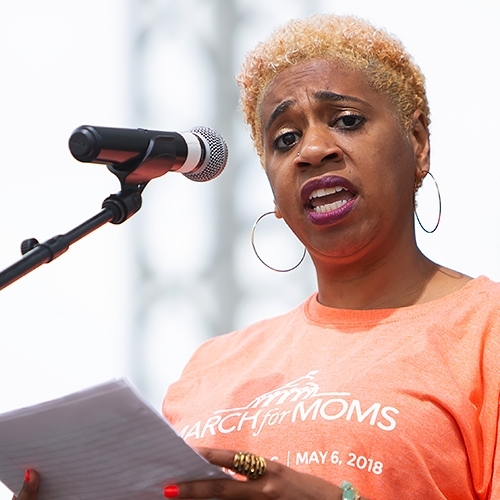

Chauntel Norris is a native of Birmingham, AL. She attended the University of Alabama at Birmingham where she earned her B.A. in African American Studies & her B.S. in Psychology.
Chauntel is a DONA trained Birth & Post-Partum Doula, a Lamaze trained Childbirth Educator and a Certified Lactation Counselor.
She is the Co-founder of Baobab Birth Collective and currently serves as the Mother's Milk Initiative Coordinator for the Alabama Prison Birth Project.
Chauntel is the mother of two brilliant children Amaiya and Ozell.
During this presentation the barriers of incarceration as it relates to lactating parents will be discussed. An overview of Program development, Partnerships development and working with corrections will also be considered. I will also show how our Alabama initiative combats those barriers and allows incarcerated women to be able to provide their milk to their infants.
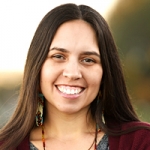
Historical Trauma, Racism and White Privilege: The Barriers to Breastfeeding Success

Camie Jae Goldhammer, MSW, LICSW, IBCLC, (Sisseton-Wahpeton) is a Clinical Social Worker and Lactation Consultant. Camie received her Master of Social Work degree from the University of Washington in 2006, specializing in Maternal Mood Disorders and the affects of complex/Intergenerational trauma on attachment, bonding and the parenting practices of Native families.
Camie is the founder and chair of the Native American Breastfeeding Coalition of Washington. She is also a founding mother and President-Elect of the National Association of Professional and Peer Lactation Supporters of Color. In 2013 she became Washington state's first Native American IBCLC. Camie is a consultant with CHEER and is also a part of the Center for Social Inclusion’s First Food Racial Equity Cohort. Recently she worked as a Campaign Director with MomsRising working to bring paid family and medical leave to Washington State which was signed into law in July 2017. She is now a member of the MomsRising breastfeeding team. She is a National leader on topics of racial equity and first food justice and recently launched the Indigenous Breastfeeding Counselor training.
Topic: Historical Trauma, Racism and White Privilege: The Barriers to Breastfeeding Success - [View Abstract]
Too often when discussing barriers to breastfeeding there tends to be a focus on education, poverty, and familial support. However, when we truly look at the causes of health disparities and inequities it is racism and discrimination that are at fault. For many of us, this can be a difficult realization and conversation to have. In this session, Ms. Goldhammer will discuss how Communities of Color are impacted by intergenerational trauma specifically when it comes to attachment and bonding as well as the role that racism and white privilege play in today’s modern day field of lactation. She will conclude with ways in which we can create meaningful impact and further advance racial equity in our field and most importantly in the communities we serve.

View Details / Enroll
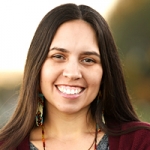
View Details / Enroll
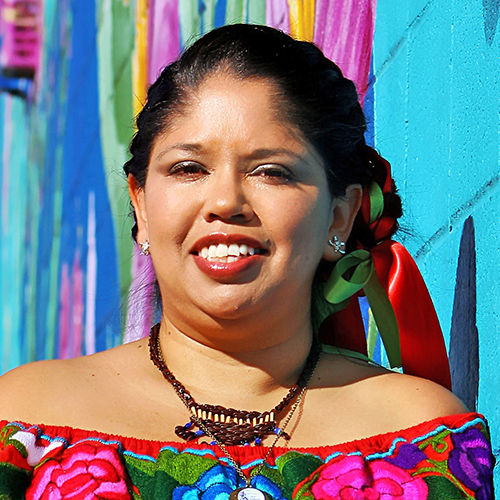
Increasing Lactation Support Through Community Partnerships

Monica Esparza is currently the Executive Director of the New Mexico Breastfeeding Task Force. She is a trained Certified Lactation Counselor and Community Interpreter who previously served families as a breastfeeding peer counselor for more than 10 years, providing peer-to-peer support to lactating families through the Department of Health Women's, Infant & Children's program both individually and in the hospital setting. She participated as a Leader in the Health Connect One Birth Leadership Academy and the NM Women of Color Leaders in Non-profit. She has served on different boards and currently sits on the National College of Midwifery Board and the New Mexico Certified Nurse Midwives Board. As a Mexican, Immigrant woman living in the south valley of Albuquerque, she brings a grassroots community approach and an equity lens into her every aspect of her work. She understands the importance of centering families and Black, Indigenous and People Of Color as a crucial step into achieve birth equity. She enjoys hiking and gardening with her husband and 2 children.
For low-income, immigrant, and rural families and their infants, access to lactation care is a critical need at one of the most vulnerable times of a child’s life. A root cause of this significant gap is the lack of lactation professionals and lactation-support training for healthcare professionals and home visitors. Knowing that home visitors are critical for families, the New Mexico Breastfeeding Taskforce (NMBTF) conducted a survey in 2020 to ascertain how to help increase home visitors’ knowledge and confidence about lactation issues so they can better support families. The survey results indicated that only 42% of home visitors had ever attended a breastfeeding class and that 100% of those surveyed could benefit from the support of lactation professionals in the communities they serve. In order to address this gap, NMBTF developed a combination of the Home Visitor Lactation Support Program and the Certified Lactation Counselors (CLC) Training programs for Lactation Education and Support Expansion in NM. First, NMBTF is piloting comprehensive lactation training for home visitors that addresses the basic lactation education they need to support the families they serve. The training program is evidence-based and includes culturally sensitive parent education, knowledge about latch and positioning, and guidance for accessing related local community resources. NMBTF partnered with home visiting programs to provide lactation education to their home visitors. Second, NMBTF worked to recruit women of color for the CLC training and provide financial aid. As CLCs, they will then be able to provide a network of expanded and enhanced lactation support in the underserved communities they serve, for their clients, and act as a resource to other home visitors.
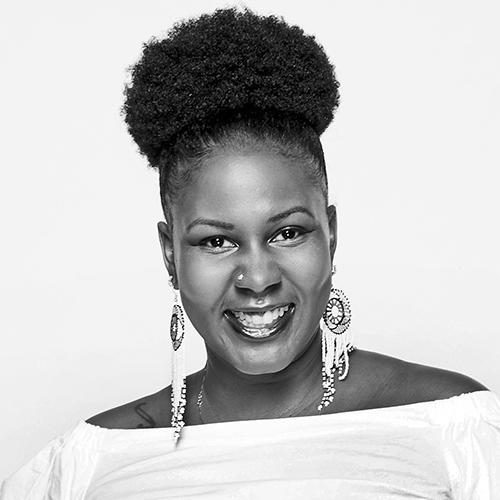
Meet Them Where They Are: Applying a Multidisciplinary, Equitable and Sustainable Approach to Breastfeeding and Lactation Practice & Promotion

TaNefer is an IBCLC, Maternal Health Strategist and Healer with over 15 years of experience in supporting families through birth, breastfeeding and postpartum. She has a background in psychology and Health education with an emphasis in community health and early career experience in counseling, social services and family advocacy. She brings a wealth of knowledge and experience as she helps her clients identify their challenges and lovingly guides them through a plan to overcome them. She has the ability to work with diverse populations and tailors support to fit the needs of each unique person or group. She educates parents, families and professionals on lactation, breastfeeding and maternal healing. She is also a researcher, serving as a Community Advisory Board member to the UCSF Preterm birth initiative and is also the Community Researcher and Relations consultant to the SACRED Birth Study. She has designed, implemented and evaluated programs in maternal equity and lactation and is the creator of the "Teach me how to breastfeed" song and viral music video. TaNefer Lumukanda Camara is also a Co-founder B.L.A.C.K Course.
It’s been a decade since the Surgeon General’s call to action to support breastfeeding. While great strides have been made to improve breastfeeding rates in the US, diverging societal conditions, disparate birth outcomes and changing family dynamics have necessitated adjustment and adaptation of more inclusive and multifaceted approaches to lactation support. With up to 34% of birthing people having experienced a traumatic birth, one study has shown how the effect on breastfeeding can go in either direction. If we factor in housing instability, mental health and race/immigration status we see greater disparities and/or differing needs according to the target population. However, the paradox is that these issues are not mutually exclusive, therefore a one size fits all approach is not sufficient. The COVID-19 Pandemic shed light on pre-existing gaps and disparities in this field and forced us to reimagine what breastfeeding promotion, protection and support should and can be. Implementing a multi-disciplinary plan to approach breastfeeding and lactation should be the trend moving forward. In this presentation you will learn how to:
Identify disciplines that can collaborate with lactation specialists to support breastfeeding promotion.
Discuss challenges in supporting populations with multiple needs and high risk.
Strategize a plan for reaching marginalized communities and populations at high risk and high need for lactation support.
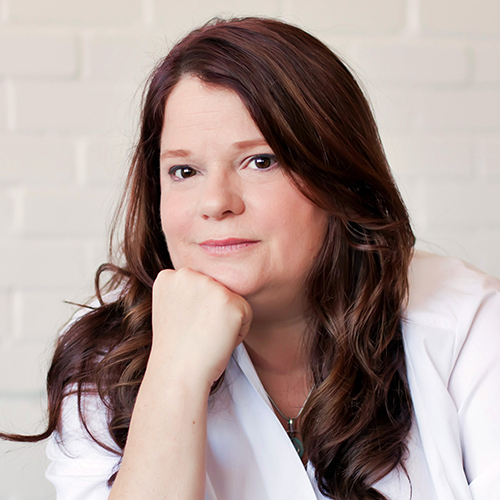
Milk Sharing and Milk Banking: Building Knowledge for Better Outcomes

Barbara D. Robertson, IBCLC, has been involved in education for over 34 years. She received a Bachelor’s degree in Elementary Education in 1988 and her Master’s in Education in 1995. Barbara left teaching elementary students in 1995 to raise her two children. Barbara is now the Director of The Breastfeeding Center of Ann Arbor and of the brand new business LactaLearning.
The Breastfeeding Center of Ann Arbor will still continue to serve breast/chestfeeding families and now LactaLearning will be dedicated to all of Barbara’s professional lactation trainings. Barbara has developed two 95 hour professional lactation training, a group training and a completely self study training with Nancy Mohrbacher. Barbara’s idea of creating professional book groups has exploded with her hosting Making More Milk with Lisa Marasco, Supporting Sucking Skills with Cathy Watson Genna, Breastfeeding Answers, 2nd Edition with Nancy Mohrbacher, and new for the fall, Safe Infant Sleep with Dr. James McKenna. Barbara will be hosting a one day online conference in the fall with Lisa Marasco and Cathy Watson Genna using all of her tech savvy skills to make this a one of a kind experience. Barbara is also a speaker for hire on a wide variety of topics including Motivational Interviewing. Barbara volunteered for the United States Lactation Consultation Association as the Director of Professional Development for 4.5 years.
She just retired as Associate Editor for Clinical Lactation, a journal she helped create for USLCA. Barbara has free podcasts, a blog, and Youtube videos which can all be found on her websites lactalearning.com and bfcaa.com. She has written many articles as well. She loves working with parents and babies, helping them with breast/chestfeeding problems in whatever way she can.
Topic: Breastfeeding: Baby’s First Milestone - [View Abstract]
Topic: Clinical Assessment and Management of Low Milk Production - [View Abstract]
Topic: Deconstructing Online Messaging: Ethical Considerations - [View Abstract]
Topic: Milk Sharing and Milk Banking: Building Knowledge for Better Outcomes - [View Abstract]
Topic: The Baby's Not Gaining Weight! Now What? - [View Abstract]
Topic: The Great Nipple Shield Debate - [View Abstract]
Humans have been sharing their breastmilk for the benefit of other babies for thousands of years. In this presentation, we will be looking at how a baby might have access to human milk if their parent cannot provide it themselves. The history and current practices of milk banking, both for profit and non-profit, will be covered as well as milk sharing.
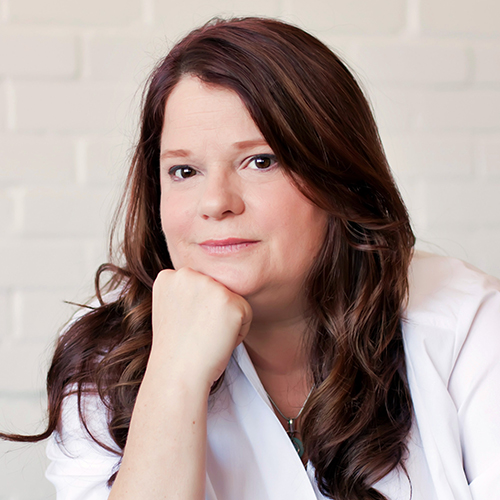
View Details / Enroll
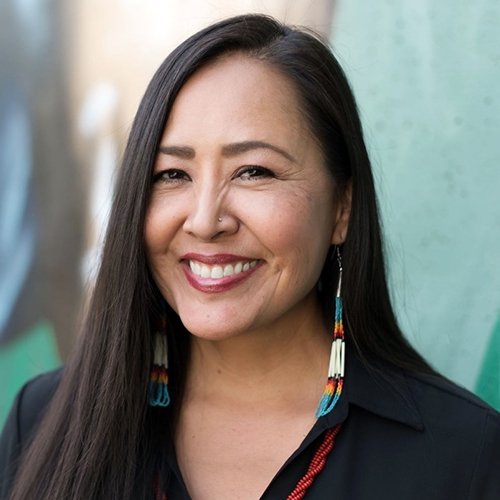
The Power of Story Telling: A Tool for Addressing Historical Trauma and Breastfeeding

Kim is born for Naakaii Diné (Mexican People) and from Tsi’naajinii (Black Streak People) clans. Born in Tuba City, maternally from Tolani Lake, AZ located in the southwestern area of the Navajo Nation. Growing up on and off the Navajo Nation, and residing in various tribal communities throughout her life, Kim is passionate about utilizing her education and experience to promote healthy living through kinship values.
Kim is a International Board Certified Lactation Consultant and has over 10 years of experience in peer-counseling, clinical and educational lactation. Kim’s work has been inclusive of Tribal and culturally diverse communities serving the needs of prenatal, newborns, and post-partum mothers and families. She is a Co-Instructor for the Indigenous Breastfeeding Counselor training course providing cultural breastfeeding and clinical education to those that can serve their community throughout Turtle Island. She also independently consults with Changing Woman Initiative out of New Mexico, a free access birth center serving Indigenous women to reproductive wellness. She is serving her second term on the United States Breastfeeding Committee Board of Directors. Currently, Kim continues to work at Valley Wise Health Medical Center as a Hospital lactation consultant for eight years and is serving the front lines assisting families and COVID mothers during the pandemic with breastfeeding and hospital policies. She also implemented the first Arizona Lactation Mentorship Pilot Program at Valleywise Hospital mentoring two student interns. This allows access to clinical hours to create strategic initiatives to bring BIPOC diversity, equity and inclusion to the field of lactation.
Currently a member of the Advisory Council Committee for the Navajo Nation Breastfeeding Coalition; she will the Urban Dine’ Community Representative for the Phoenix area. This new role will include breastfeeding home visits and telehealth lactation support serving the urban and telehealth rural BIPOC community. She recently collaborated with Wellness Within Reach also providing breastfeeding education and one on one breastfeeding support. Kim's extensive experience in this field has led to opportunities in consulting, which along with her husband synthesized their consulting business in Tribal Indemnity. Within three years, Tribal Indemnity has assumed responsibility of complex projects and strategic planning with one of the largest Tribes in Arizona. She recently established her own small business, Indigenous Breastfeeding Az, dba.
Kim enjoys spending time with her husband of twenty-three years and three daughters of whom she breastfed until they were 2 years old. She also loves early morning runs, hiking, boxing and yoga.
Native people are natural story tellers. This method of knowledge exchange has been around for thousands of years. Story telling is a fundamental tool that has been used to pass down information, share ideas and a teaching opportunity within Indigenous communities. It allows understanding of lived experiences and consequences to sustain and restore balance for many generations. An important component of lactation counseling is we can learn from an Indigenous lens from listening to one’s story when addressing breastfeeding families.
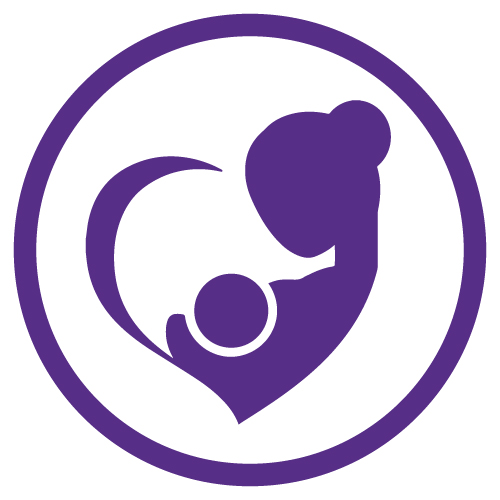
View Details / Enroll

Understanding and Addressing Breastfeeding Disparities and Human Milk Inequity in Emergencies

Aunchalee Palmquist is a medical anthropologist and International Board Certified Lactation Consultant (IBCLC). She completed postdoctoral studies at the National Institutes of Health and in the Global Health Initiative at Yale University. Palmquist is Assistant Professor of Anthropology and Director of the Program for Ethnographic Research and Community Studies at Elon University. Her recent research focuses on critical biocultural contexts of breastfeeding, human milk sharing, and infant and young child feeding in emergencies. She blogs at anthrolactology.com.
Emergencies, whether natural disasters or complex humanitarian crises, often reproduce and exacerbate pre-existing health disparities. Mothers and infants within vulnerable, marginalized, and oppressed social groups are more likely to carry a disproportionate burden of perinatal morbidity and mortality resulting from emergencies as compared with those in privileged groups. Emergency response for pregnancy support, childbirth, and infant and young child feeding (IYCF-E) tends to address acute needs but often fails to support long-term and sustainable resilience to health inequalities and inequities. This presentation provides an overview of critical issues that influence social inequalities of perinatal maternal and infant nutrition in a global context, and then highlights the intersection with IYCF-E. A case studies approach will be used to illustrate key concepts. Although emergencies present numerous challenges to protecting maternal and infant health, they also avail unique opportunities to promote and support breastfeeding and human milk equity globally.
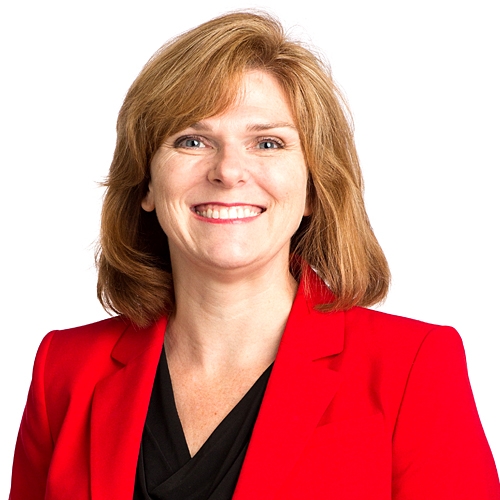
Utilizing Connected Health Technology and Telehealth to Improve Perinatal Access and Quality in Rural Areas

Sarah J. Rhoads, PhD, DNP is a telehealth researcher and educator, emphasizing the human impact of technologies on health care provider roles and patients. Dr. Rhoads is a Professor at the University of Tennessee Health Science Center. She has been the primary investigator on multiple grants related to telehealth and is a Co-Investigator with the South Central Telehealth Resource Center, which facilitates telemedicine in Arkansas, Mississippi and Tennessee. Several of Dr. Rhoads’ research and project grants have focused on the Mississippi River Delta region of the United States. Dr. Rhoads has a passion for improving maternal, neonatal, and pediatric care in rural areas.
Despite the best efforts of the health care community, many rural women during pregnancy do not have access to obstetrical health care providers or a hospital that delivers near their home. This decreased access to services may lead to poor pregnancy and neonatal outcomes and when a woman has a high-risk pregnancy, access to care becomes a critical issue. Due to this disparity in access to care and maternal/infant outcomes, it is essential that health care providers and communities examine different ways to improve access. Connected health and telehealth technology is an innovative way to reduce access to care issues and assist women in having a healthier pregnancy, ideally improving maternal and neonatal outcomes.

View Details / Enroll
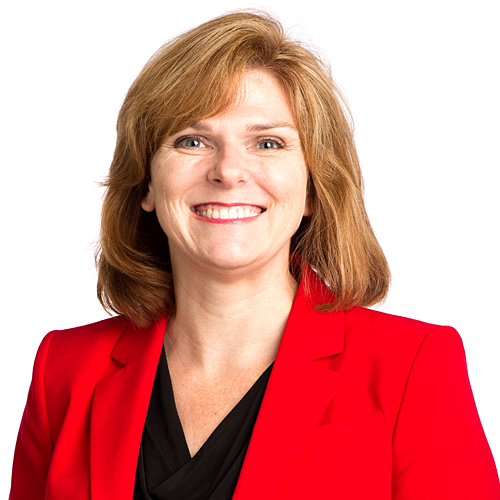
View Details / Enroll




